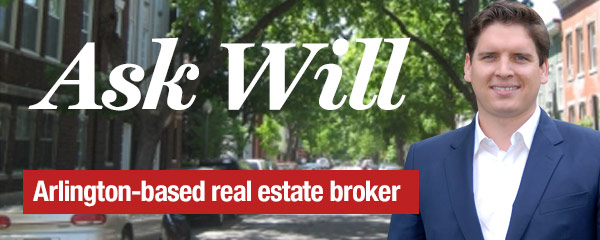
This regularly-scheduled sponsored Q&A column is written by Will Wiard, Arlington-based real estate broker, voted one of Washington’s Best Realtors of 2015 by Washingtonian. Please submit your questions via email.
Q: I’m thinking about buying a condo and hear that the condo association for the building should be providing me with information in a Resale Packet or Certificate. What’s included in this packet? Is there anything I should be on the lookout for as I’m reviewing it?
A: When purchasing a condo in Virginia, a condo association for the building, if intact, is required to provide you with information about the building under the Virginia Condominium Act. If a condo association exists, the Seller of the unit must seek out and provide you with a Resale Certificate for that unit and any other documentation they have specific to the unit, and building, prior to settlement.
What is the Resale Certificate? The Resale Certificate includes important documentation about the property, including the homeowner association’s description of rules and regulations, financial standing and planned assessments, as well as condo board meeting minutes and articles of incorporation. This is not just “routine paperwork” and should be carefully reviewed by the purchaser.
The Virginia Condominium Act gives a purchaser three days from receiving the Resale Certificate or being notified that the certificate is not available to cancel the contract at any time within the three days of notice for any reason and without penalty.
Here are the top things to look for when reviewing the Resale Certificate:
Pending Special Assessments: Be on the lookout for any special assessments, or charges for special projects planned in the building, that are pending or have been approved. These should be listed in the Resale Certificate. If a special assessment is listed, it could be the purchaser’s responsibly to cover the cost of this assessment after closing. Some special assessments can exceed $10,000 per unit, or more.
Are there restrictions (on pets, grills, etc.)? The most common situation for a purchaser to void a contract is because of a restriction in the building. Many buildings have restrictions on pets. If the building allows pets, there may be strict policies on the weight of the pet, often intended to keep large animals out of the building.
Is the condo association in good financial standing? You can find out by reviewing the amount of funds in the association’s reserves. If the association is in the red or has low reserves it could mean there’s a problem. It’s also a good idea to review the minutes from association meetings to identify any pending issues that could affect you financially upon purchasing the unit.
Thank you for this week’s question. Please keep them coming to [email protected]. This is also a great place to reach me for anyone looking to buy or sell a home in the Arlington area.
The views and opinions expressed in the column are those of the author and do not necessarily reflect the views of ARLnow.com.

